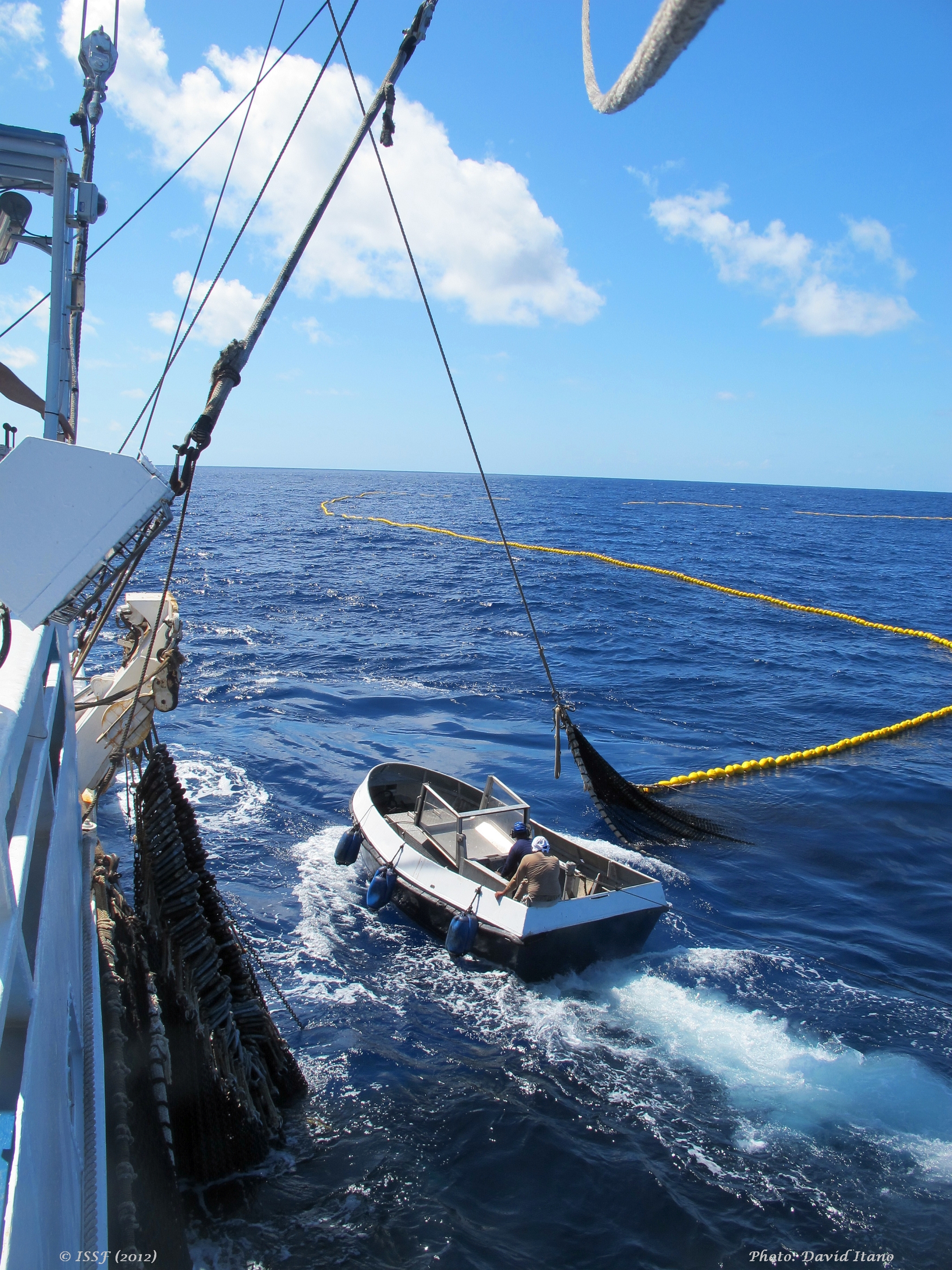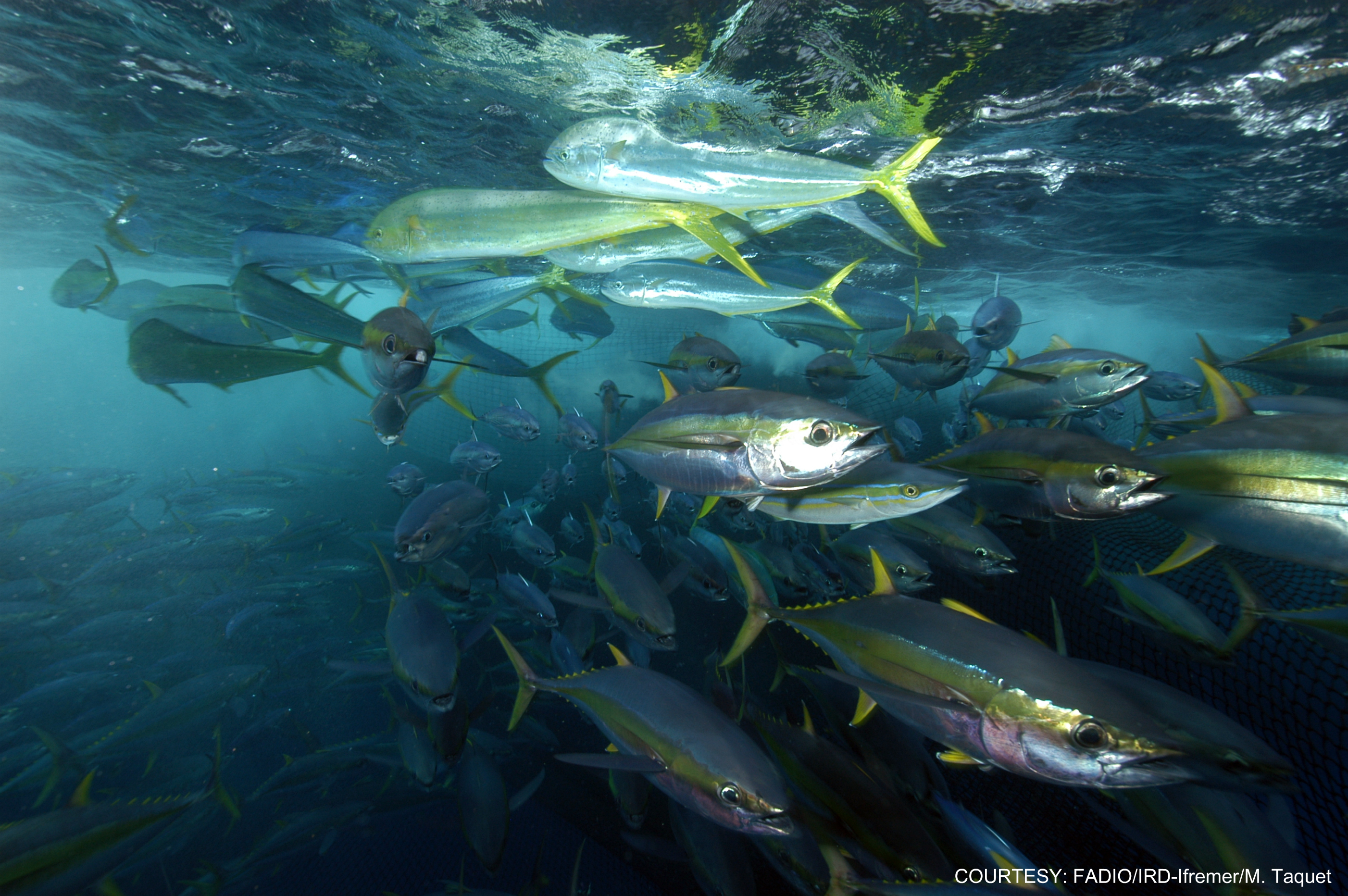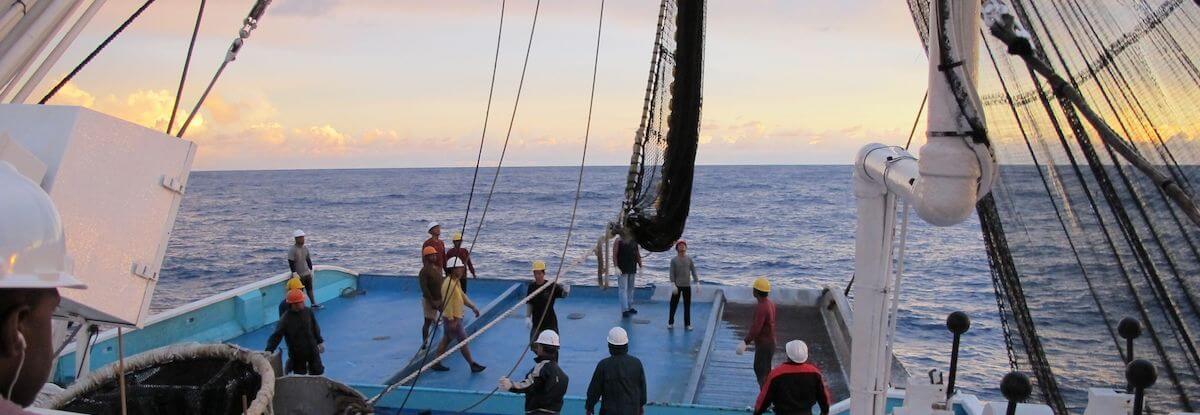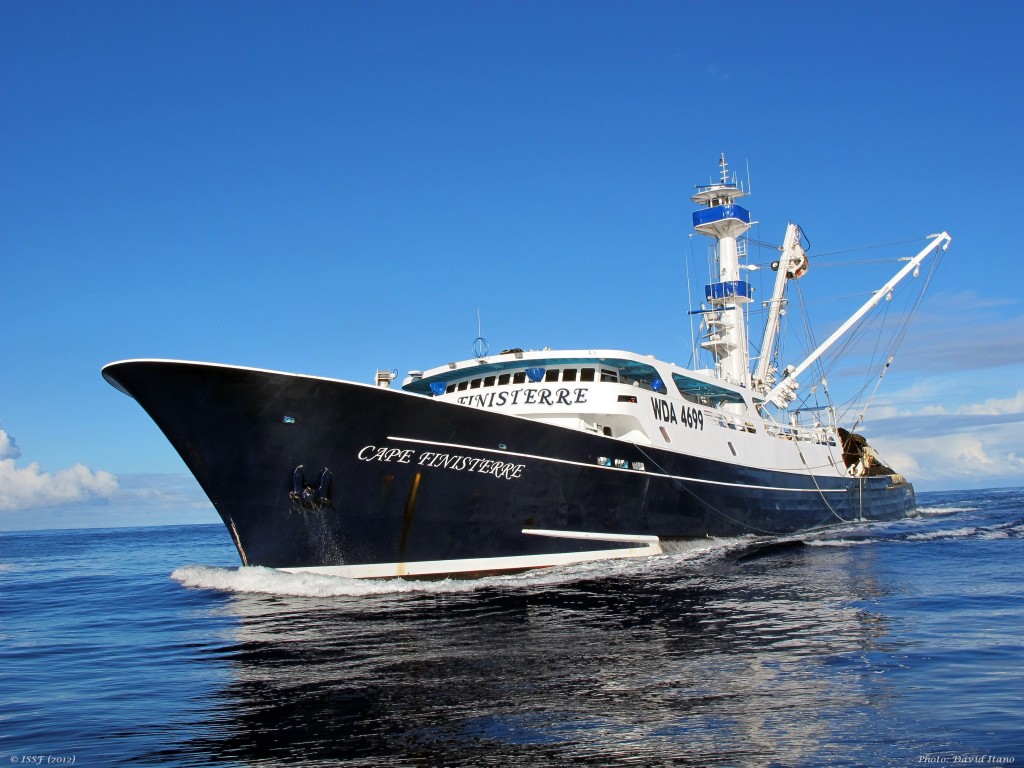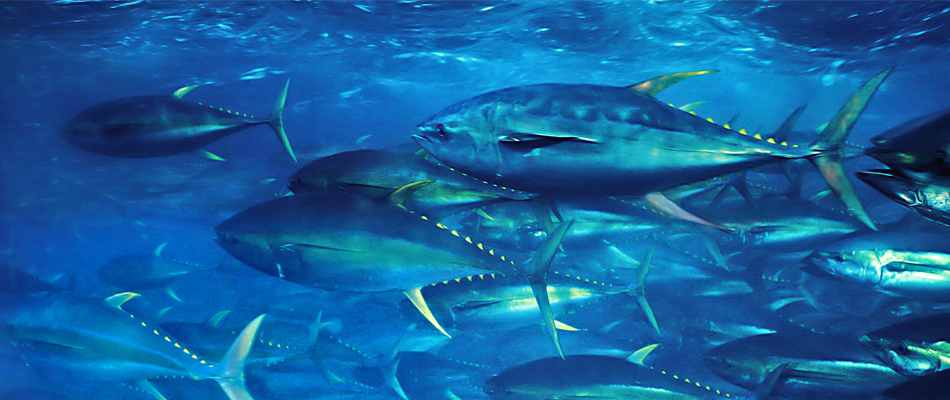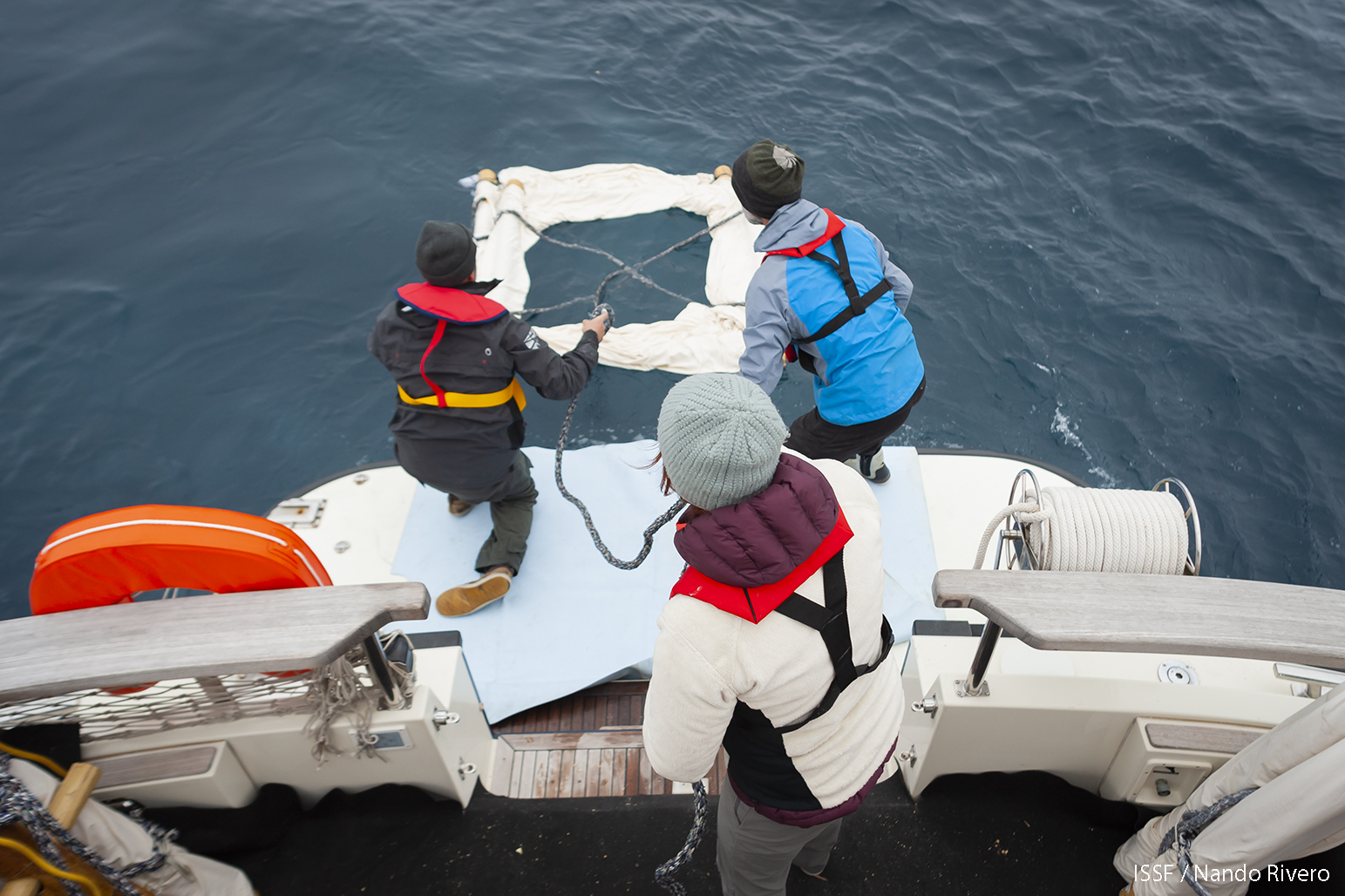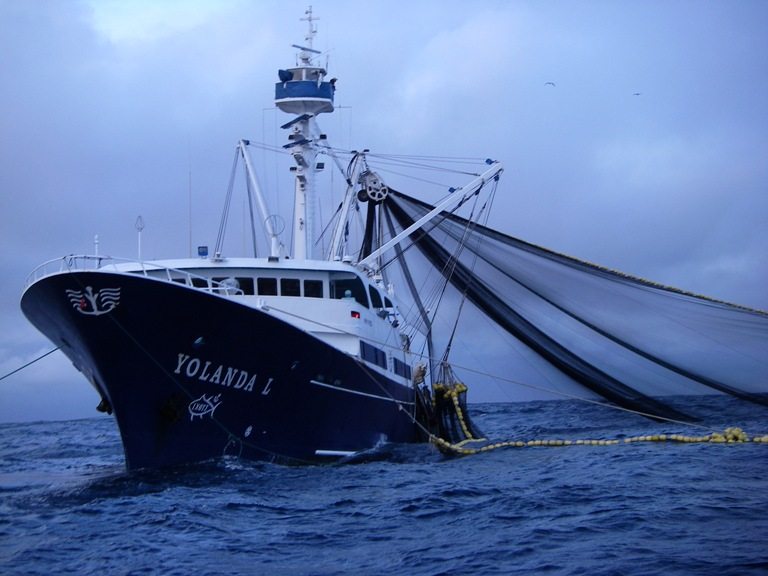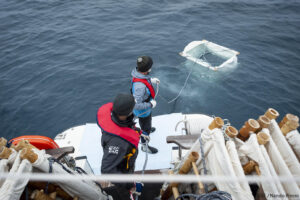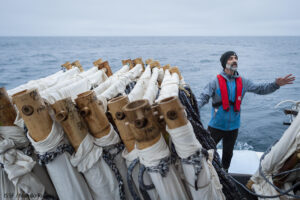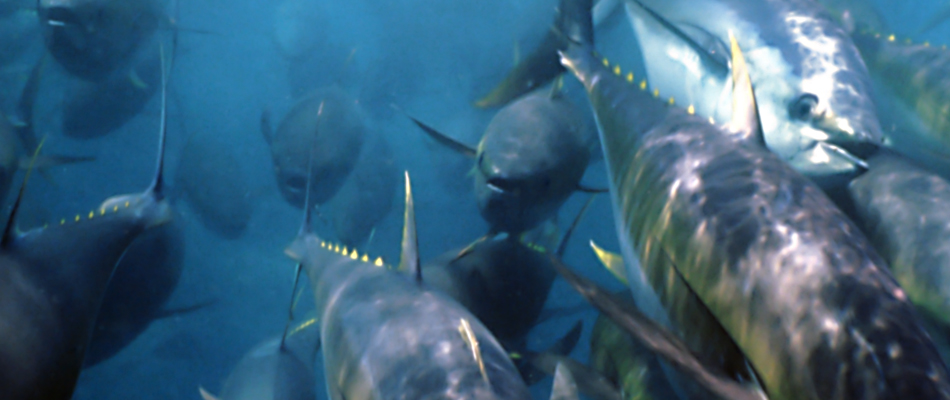Science Leads the Way on Improved Drifting FAD Design and Management in Pacific Ocean Tuna Fisheries
Science-led, collaborative efforts are the key to regional fisheries management organizations making progress on improved management of fish aggregating devices (FADs), including for the world’s busiest tuna fishing grounds in the Western and Central Pacific Ocean (WCPO).
Two papers written jointly by scientists with the Oceanic Fisheries Programme of the Pacific Community (SPC) and the International Seafood Sustainability Foundation (ISSF) present current regional research projects on FADs to better understand drifting FAD (dFAD) use and limit related ecosystem impacts.
The papers are published on the occasion of the meeting of the Scientific Committee of the Western and Central Pacific Fisheries Commission (WCPFC) — which reviews the latest science on the largest tuna fisheries in the world — and address topics of timely concern to the Commission. Drifting FADs are used extensively in the WCPO. Estimates indicate that, over the last decade, between 23,000 and 40,000 dFADs were deployed each year.
Solutions for Marine Pollution, Ghost Fishing, and Ecosystem Impacts
Traditional dFAD designs can lead to entanglement and mortality of non-target species like sharks and turtles. The rate of lost dFADs is also of growing concern. The communities of the region and many fishery stakeholders in the WCPO are keen to find solutions to the marine pollution, ghost fishing, and ecosystem impacts on coastal and pelagic environments caused by these devices.
Accordingly, the papers offer insights to inform work by WCPFC scientists and managers, specifically by detailing the latest dFAD data and research findings and reviewing the need for progressive research in the region. The scientist co-authors:
- Summarize the latest study to quantify dFAD use in collaboration with the Parties to the Nauru Agreement (PNA) and work to improve data collection on lost dFADs in the region
- Make specific recommendations for a project to create guidelines for the reduction of dFAD impact on sea turtles
- Encourage further testing of biodegradable and non-entangling dFAD designs in the WCPO
In the report entitled Overview of Ongoing Work on FADs, co-authors Lauriane Escalle, Steven Hare and Paul Hamer of SPC, and Gala Moreno of ISSF, summarize several dFAD-related projects, including:
- A regional database on beached and lost dFADs
- Updated estimates on the number of dFADs deployed annually in the WCPO and number of active buoys monitored per vessel based on the PNA dFAD tracking data
- A Pacific-wide project to define guidelines to reduce the impact of lost and abandoned dFADs on marine turtles
In reviewing these projects, the authors share new and useful insights to WCPFC, and provide them a better understanding of current dFAD use through scientific data. A review of the number of dFADs deployed by vessels and number of active buoys monitored in the WCPO, for example, indicates that the existing WCPFC measure on dFAD limits is not achieving its intended effect.
Sustainable FAD Information for the Tuna Fishing Industry
In an complementary effort to provide additional, actionable data and analysis to WCPFC, a second report, Report of Project 110: Non-entangling and Biodegradable FAD Trial in the Western and Central Pacific Ocean, co-authored by Lauriane Escalle and Paul Hamer of SPC, and Gala Moreno of ISSF, reviews plans for further dFAD research in the region.
The paper explores how forthcoming WCPO trials will “provide essential information to the tuna fishing industry on the designs, types of materials, performance and cost-effectiveness of non-entangling and biodegradable dFADs in the WCPO context, and support industry to increase uptake of more ecologically sustainable dFADs.”
The authors anticipate an influx of critical data and findings when the trials commence, including data on the performance and longevity of non-entangling and biodegradable FAD designs. Results will help to provide guidelines to the industry and initiate rapid changes in response to the current, related WCPFC measure. The project will build on substantial prior research in the WCPO and other regions.
The submission of these co-authored papers is one example of how science is leading the way toward more sustainable dFAD use in Pacific tuna fisheries — providing the latest data and research findings that WCPFC scientists and managers need to make concrete progress and proposing next-step research that builds on key learnings to date.
We look forward to further collaboration between ISSF and SPC, as well as fishing vessels and other industry partners, toward achievable, science-based solutions for reducing the impact of dFAD fishing on global tuna fisheries and the broader marine ecosystem.
